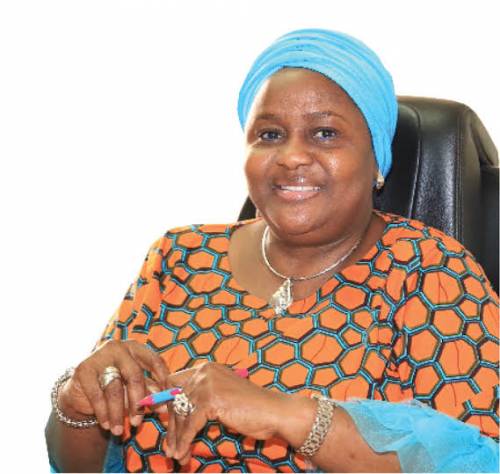The inability of 27 states to fully or substantially implement the Contributory Pension Scheme (CPS) is the reason Pension Fund Administrators (PFAs) will not invest pension funds in such states.
Data sourced from the National Pension Commission (PenCom) show that despite clamours by state governors to access pension funds for infrastructural development, most of them are either not implementing the new pension scheme or are slow about it.
While relevant pension laws would not allow them to borrow, the inability of the affected states to implement CPS is also putting millions of pensioners under the new scheme at risk.
As of August 31, 2020, the pension assets under the management of PFAs were worth N11.35 trillion.Governors have declared interest to borrow from the fund, but the Pension Reform Act, 2014 (PRA, 2014) prohibits such borrowing.
Data from PenCom show that 27 states are still implementing the old Defined Benefits Scheme by not remitting pension under the new scheme..
The hurdles for the states
To be adjudged as implementing the new contributory scheme, a state must draft a CPS Bill modelled after the PRA being implemented by the federal government and the private sector, pass the bill into law, set up a contributory pension board or Bureau, appoint a PFA, conduct an actuarial valuation to determine accrued pension rights, open a Retirement Benefits Bond Redemption Fund Account (RBBRFA) with the Central Bank of Nigeria (CBN), start remitting employer and employee monthly pension and also put in place a Group Life Insurance Policy for employees.
Details of the level of implementation of the CPS at the state level obtained from PenCom show that as at the end of September 2020, only nine states and the Federal Capital Territory (FCT) have substantially implemented the new pension scheme by remitting employer and employee pension contributions.
These states are Lagos, FCT, Osun, Kaduna, Delta, Ekiti, Ondo, Edo, Benue and Anambra.
Records show that Kebbi State is remitting only employee pension contribution in violation of the CPS law which requires the state government to also remit its employer contribution.
While 25 states have enacted laws on CPS, seven are still at the bill level more than a decade and a half since the scheme came into existence at the federal level.
States yet to enact laws on CPS include Kwara, Plateau, Cross River, Borno, Akwa Ibom, Bauchi and Katsina.
Jigawa, Kano, Yobe, Gombe and Zamfara states operate other pension schemes different from the contributory pension scheme.
Out of 25 states that have enacted laws on CPS, only 15 have pension boards or bureaux and they include Lagos, FCT, Osun, Kaduna, Delta, Ekiti, Ondo, Edo, Benue, Kebbi, Niger, Rivers, Ogun, Bayelsa and Kogi.
PenCom’s records show that only eight states have conducted actuarial valuation, which is a critical component in the implementation of the scheme for ease of transition from the old to the new scheme in such a way that pension entitlements of workers before the scheme are determined and factored into the new scheme.
These include Lagos, FCT, Osun, Kaduna, Delta, Ekiti, Rivers and Anambra.
However, out of the eight states that have conducted actuarial valuation, only six are funding the accrued pension rights of workers determined during the valuation. The states include Lagos, FCT, Osun, Kaduna, Delta and Anambra.
It is worth noting that only Lagos, FCT, Osun, Ondo and Edo states have valid Group Life Insurance for their workers. This means that at an event of the death of any employees in other states, their families may have no insurance cover to fall back on.
Despite the low implementation of the CPS at the state level, and by implication not qualified to access pension funds through bonds, treasury bills and other investible financial instruments, governors declared they wanted to borrow pension funds even when the PRA, 2014 is clearly against it.
Pension funds not near N17trn
Meanwhile, checks show that governors cannot borrow the said N17trn for several reasons.
To start with, the entire pension fund and assets under the Contributory Pension Scheme (CPS) is not up to N17trn.
In any case, even if the nation’s total pension assets are more than N17trn, the Pension Reform Act (PRA) 2014 would not allow the governors to withdraw or borrow the said fund.
This simply means that governments at federal, states and local levels can only access pension fund assets through investments made by the PFAs in Treasury Bills issued by the Central Bank of Nigeria or Bonds (including Sukuk) approved by the Securities & Exchange Commission (SEC) and other relevant Institutions.
The PRA 2014 and the 2019 Regulation on Investment of Pension Funds stipulate the allowable financial instruments in which pension fund assets can be invested and these are Equities; Federal Government Securities; State/Local Government Bonds; Corporate Debt Securities; Money Market Instruments; Open/Closed-end Funds; Infrastructure Bonds & Funds; Private Equity Funds and any securities/instruments that may be approved by PenCom, from time to time.
In any case, even if the governors hide under state securities to access pension funds for infrastructure development, they will still not be able to make PFAs invest in them because most of the states do not comply with the CPS.
Source: Daily Trust




